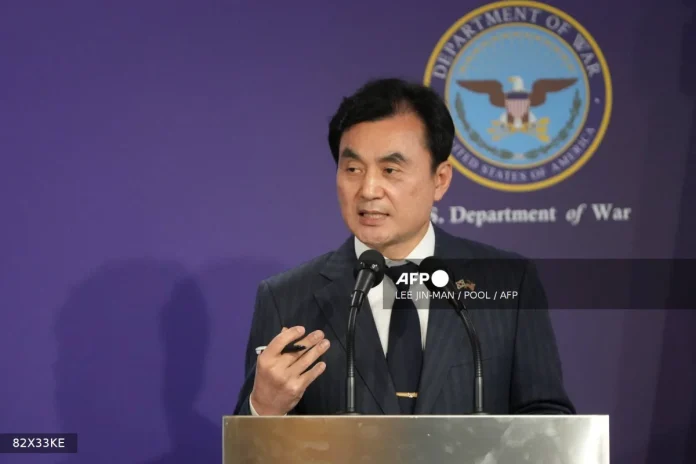South Korea’s defence minister says building a nuclear submarine domestically is reasonable, citing 30 years of accumulated technology and research
SEOUL: South Korea’s defence ministry considers building a nuclear-powered submarine domestically a “reasonable” approach despite US President Donald Trump’s announcement it would be constructed in the United States.
Trump had declared the submarine would be built at a Philadelphia shipyard “right here in the good ol’ U.S.A.”, where nuclear technology represents some of America’s most sensitive military secrets.
The statement follows Seoul’s announcement that both countries reached a broad deal covering investment and shipbuilding after Trump met South Korean President Lee Jae Myung.
Critics suggest Washington may pressure Seoul to invest in the Philadelphia shipyard in exchange for US support to construct the vessel.
Defence Minister Ahn Gyu-back told lawmakers at the National Assembly that domestic construction made sense given South Korea’s technological foundation.
“We believe it is reasonable, given that we have accumulated more than 30 years of technology and research,” Ahn said.
Nuclear-powered submarines can remain submerged far longer than diesel-powered vessels, which must regularly surface to recharge batteries.
Senior defence ministry official Won Chong-dae confirmed this week that building a nuclear-powered submarine with South Korea’s own technology is “feasible”.
Seoul anticipates launching the lead vessel by the mid to late 2030s if it secures submarine fuel through US consultations and begins construction by the late 2020s.
A presidential aide noted Seoul had sought and received Washington’s “authorisation for the raw materials” without mentioning US submarine technology.
The Philadelphia shipyard has been operated by South Korea’s Hanwha Ocean since last year, but Minister Ahn assessed the facility currently lacks sufficient technology, workforce, and facilities.
President Lee stated that as South Korea’s military capabilities grow, “America’s defence burden in the Indo-Pacific will also be reduced”. – AFP








